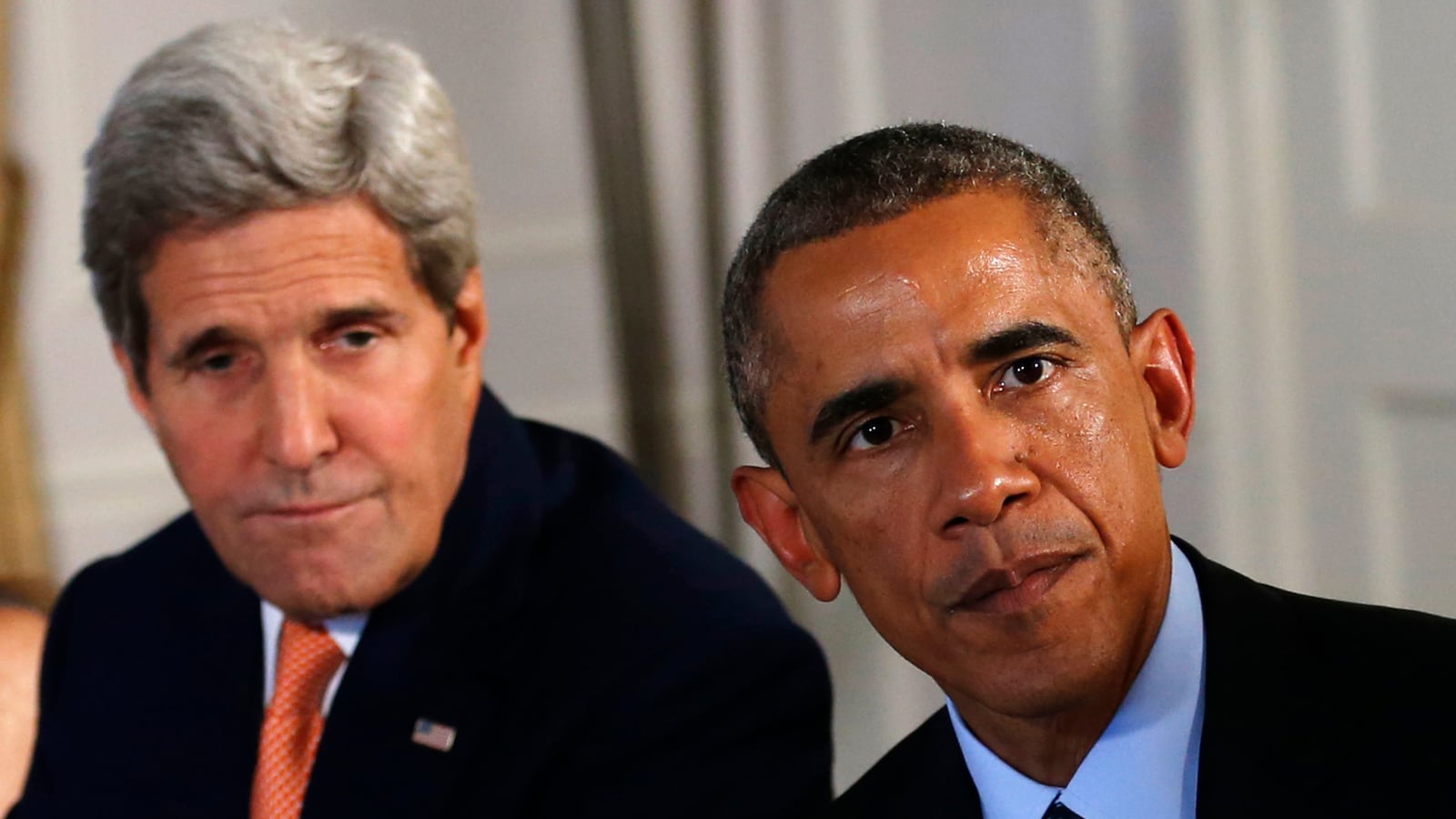Anybody who wants to keep Iran from getting The Bomb and keep the United States from yet another war in the Middle East should welcome the news that on Thursday diplomats from the U.S., Iran, and five other nations will meet again to press ahead toward a final nuclear deal by Nov. 24. Despite the inevitable ups and downs in these talks, they are the longest sustained direct contacts between our two governments in more than 30 years.
President Barack Obama and Secretary John Kerry have made it clear that a comprehensive accord to keep Iran from building a nuclear weapon can be achieved. But where does Congress stand? It can be on the right side of diplomatic history and of national security by supporting our negotiators as they lock down that deal.
The first-step nuclear agreement that went into effect at the beginning of 2014 has successfully frozen and partially rolled back the most dangerous elements of Iran’s nuclear program. And the International Atomic Energy Agency continues to confirm that Iran has adhered to its nuclear obligations outlined by the agreement.
For more than eight months, inspectors have been monitoring Iran’s enrichment sites every day. The more eyes on Iran’s centrifuges and its uranium supply, the easier it is to ensure the nuclear program is used for exclusively peaceful energy purposes.
This work takes a page from President Ronald Reagan, who liked to repeat the Russian proverb “trust but verify.” Reagan learned this in the midst of negotiating historic arms-reduction treaties with the Soviets at the height of the Cold War. So too with Iran: The nuclear deal is grounded in verification, which is essential for its success.
Our diplomats are working toward a realistic accord that focuses on achieving an agreement that will guard against a nuclear-armed Iran. Some in Congress have wanted to tie our diplomats’ hands with onerous conditions for a final agreement. As with any negotiation, what matters in the end is getting the desired outcome, not just scoring points along the way.
The talks have been proceeding since January under an agreement that is verifiably better than simply a freeze of what was the status quo. That means continuing the talks represents progress, not backsliding.
What matters most is that if the deal is sealed, let’s be clear, it prevents Iran from developing a nuclear weapon. New sanctions now would lead to the collapse of the talks and a reversal of progress already made. In contrast, a successful outcome on the nuclear issue could pave the way for progress on other issues of concern with Iran.
We must remember how the United States has dealt with other hostile powers with which we have successfully negotiated arms-control agreements.
At a reception with Western ambassadors at the Polish embassy in Moscow in November 1956, then-Soviet Premier Nikita Khrushchev proclaimed of capitalism and the West, “We will bury you!” Thirteen years later, the United States and the Soviet Union began negotiating what would become the first Strategic Arms Limitation Agreement. Many other agreements on nuclear and conventional weapons have followed, each one making the world safer.
During that same time, the Soviet Union disintegrated and our relationship with Russia evolved, going through ups and downs that continue with the present crisis in the Ukraine. The key to the relationship is that our two countries keep talking to each other, even as we felt threatened by each other and no matter how much we disagreed over a given issue.
The refusal of American political leaders to engage realistically and constructively with Iran has been costly for our nation and the world. But the talks have made progress despite our strong disapproval of Iran’s current form of government, its abhorrent human-rights record, and its support for acts of terrorism committed throughout the region.
We raise these objections publicly and vehemently, while the dialogue—and the possibility for change—continues. This approach also helps describe our ongoing engagement with Russia, China, and other governments around the world with whom we maintain diplomatic relations while objecting to their military, human-rights, and civil-rights policies.
Diplomacy with Iran has already made the world a safer place. This new, although tenuous, dialogue with Iran offers real possibilities for change. We have a responsibility to seize the moment, and not let some fearful naysayers here or anywhere else stop these talks that are vital to America’s national interests and, indeed, to world peace.






